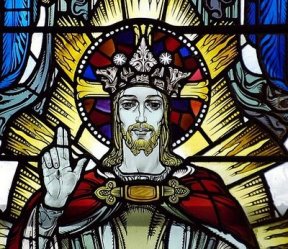
 LOVE LANGUAGES. I’ve always loved studying and experiencing other languages. At my grade school, we were lucky to study four years of Spanish. In high school, I had four years of German and one year of Latin. And, in the seminary, I studied a combined 14 semesters of Spanish, Latin, Hebrew, & Greek. It’s a little embarrassing to admit that, after all that study, the only language I speak fluently is English (and that’s debatable at times!).
LOVE LANGUAGES. I’ve always loved studying and experiencing other languages. At my grade school, we were lucky to study four years of Spanish. In high school, I had four years of German and one year of Latin. And, in the seminary, I studied a combined 14 semesters of Spanish, Latin, Hebrew, & Greek. It’s a little embarrassing to admit that, after all that study, the only language I speak fluently is English (and that’s debatable at times!).
The more deeply one becomes involved in sacred music, the more the need for a working proficiency in Latin becomes necessary. So much of the treasury of music for worship uses what continues to be the mother tongue of Roman Catholics.
Those who attend Mass in Latin, whether the Ordinary or Extraordinary Form, will know the phrase Dominus vobiscum, to which the response is Et cum spiritu tuo. The meaning, of course, is: “The Lord be with you. And with your spirit.”
I like that first word very much: Dominus. That’s a great word for “Lord,” because it is related to our English word, “dominate.” That well describes what our Lord is supposed to do. He is supposed to “dominate” our lives!
Does He? The Church celebrates Jesus today as “Christ the King.” If He’s not the King of our hearts, where else will His dominion be?
What dominates your life?
• Some people let guarding & building up their reputation dominate their lives.
• Some people are dominated by soccer or football or cheerleading.
• Others are dominated by depression.
• Countless numbers of people are dominated by an addiction.
• And, for those who aren’t, many times our lives are dominated by the addiction of someone else.
• Some people’s lives are dominated by debt and financial woes.
• Tons of people are dominated by their phones and iPads and other gadgets.
• For some people, it’s hatred and grudges that they allow to dominate them.
• For many musicians, it is the endless pursuit of perfection that consumes, enslaves, and dominates us.
Exactly one month from tomorrow, we will be celebrating Christmas. If you should go to Midnight Mass, you will hear from the Prophet Isaiah in the first reading. This is what he will say: “For unto us a Child is born, a Son is given us; upon His shoulder, dominion rests.”
Allowing God to have dominion in our lives is essential for our happiness. It doesn’t take a lot of work, and you don’t have to speak any fancy languages. All you have to do is give God control.
Will you let Christ be King of your heart? Will you let Him dominate your music, your family, and your life?

